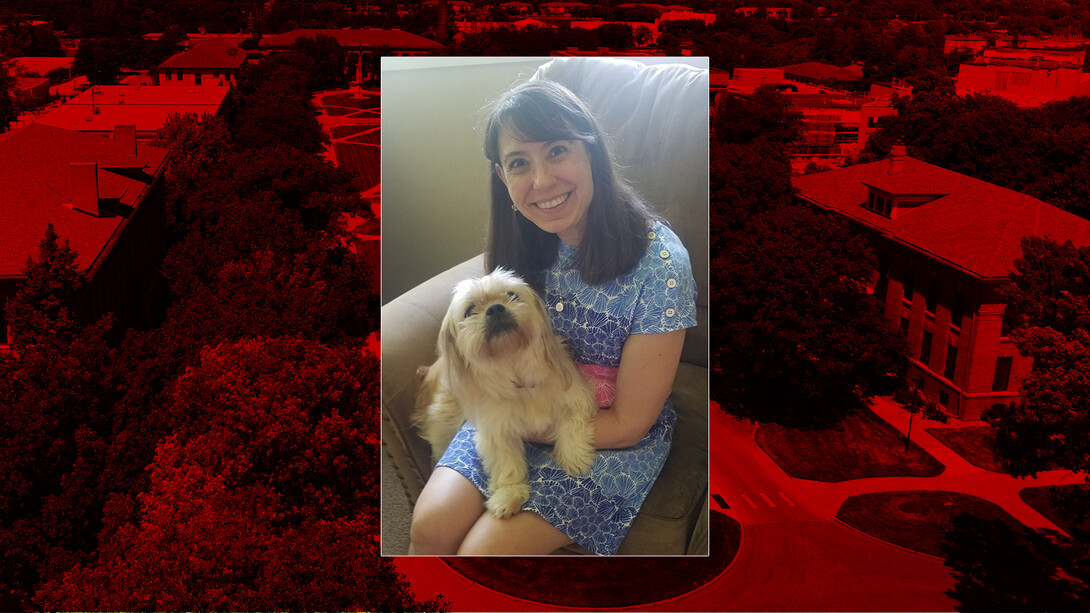
About Erin
I’m from Washington, Missouri, which is a medium-sized town about 60 miles west of St. Louis. I went to college at Truman State University in Kirksville, Missouri, where I majored in mathematics. I had a lot of trouble choosing a major because I was interested in so many different areas, and I ended up with three minors: statistical methods, English literature and philosophy. I really liked math, but I wanted to use it to solve real problems. From there, I found statistics. What drew me to statistics is that I never really had to pick a major - I could work in different disciplines every day through collaborations with scientists in those areas.
I taught my first class when I was still an undergraduate, which was an elementary algebra course for students who needed a review before taking college algebra. I really fell in love with teaching, and knew I wanted to be a university faculty member. I went to graduate school at North Carolina State University and taught the entire time I was there as a graduate student instructor. After graduate school, I came to UNL and have been here ever since.
What is your position at the University of Nebraska-Lincoln?
I currently have two roles. I’m a professor of statistics and also the associate dean for academic programming and assessments in the College of Agricultural Sciences and Natural Resources. As a faculty member, I teach every semester and advise graduate students. My particular area of interest is statistics education. I work on the statistical preparation of teachers, particularly designing curricula to prepare K-12 teachers and graduate student instructors for the statistical content they’ll be teaching to their own students. I’m also interested in understanding how to foster conceptual understanding in students, especially of theoretical ideas, and how to use writing to assist in this.
As an associate dean, I do a lot of different things. I’m CASNR’s representative on several university-wide committees, like the University-Wide Assessment Committee and the Academic Solutions Council. I’m also the dean’s office representative on some college-wide committees, like the CASNR Curriculum Committee and the CASNR Teaching and Learning Improvement Council. I have some really fun jobs, like awarding scholarships, and some not-so-fun jobs, like sending emails to students on academic probation. With all of these, my priority is the success of our students.
What drew you to the University of Nebraska-Lincoln?
I knew from the time I was an undergraduate that I wanted to be faculty member. However, based on my own college experience, I planned on returning to a small, liberal-arts school. My experience at NC State helped me discover that I enjoyed collaborating with scientists in other disciplines, and that I’d appreciate a faculty job where I had more opportunities to do so. One of my good friends in graduate school had come to NC State after completing his bachelor’s and master’s degrees at UNL, and encouraged me to apply for the job. I loved that the position gave me the opportunity to work with other scientists, as well as teach a variety of both graduate and undergraduate courses.
What aspect of working in an educational setting do you enjoy the most?
The students! I would much rather be in a classroom or working with my graduate students than just working alone in my office. I love seeing them make connections and discoveries. While I am not in any way a theoretical statistician, my favorite courses to teach are mathematical statistics I and II, which are theory-based. I love seeing students discover how abstract concepts are used to solve real problems. During the second semester course, I ask the students to read an article about doping in sports. Listening to them argue about false discovery rates is my favorite day of the semester. They’ve taken this concept of type I error, which can be a rote definition in a textbook, and internalized its meaning to the point that they can get emotional about its implication in an athlete’s life.
What do you consider your greatest achievement?
This is hard, because I feel like everything that I’ve achieved is the result of great mentoring, great teamwork, the help of so many others and a lot of luck. There are many things I’m proud of, but two things stand out. First, I’m so proud of the graduate students I’ve mentored that have gone on to be outstanding statistics education faculty members themselves. They are having tremendous influence on their own students and the statistics education community around the world. Second, I was so honored to give the commencement address at the NC State Statistics graduation ceremony a few years ago. It meant so much to me to be invited and made me feel like my career had really come full circle.
What is something that most people don't know about you?
My first name means ‘Ireland’ and as a result I have a lot of shamrock-themed things in my house. I even have running shoes with shamrocks on them!
What is your life like outside of work?
Outside of work, I enjoy reading, especially historical fiction and mysteries. I usually have two books going at the same time, one in print and one on audio. I just finished “The Rose Code,” which is a novel about codebreakers at Bletchley Park during World War II, and I highly recommend it. I have a very sweet dog named Tulip, and I love spending time with her. She’s getting older so is not much interested in playing but she loves cuddles and taking walks.







